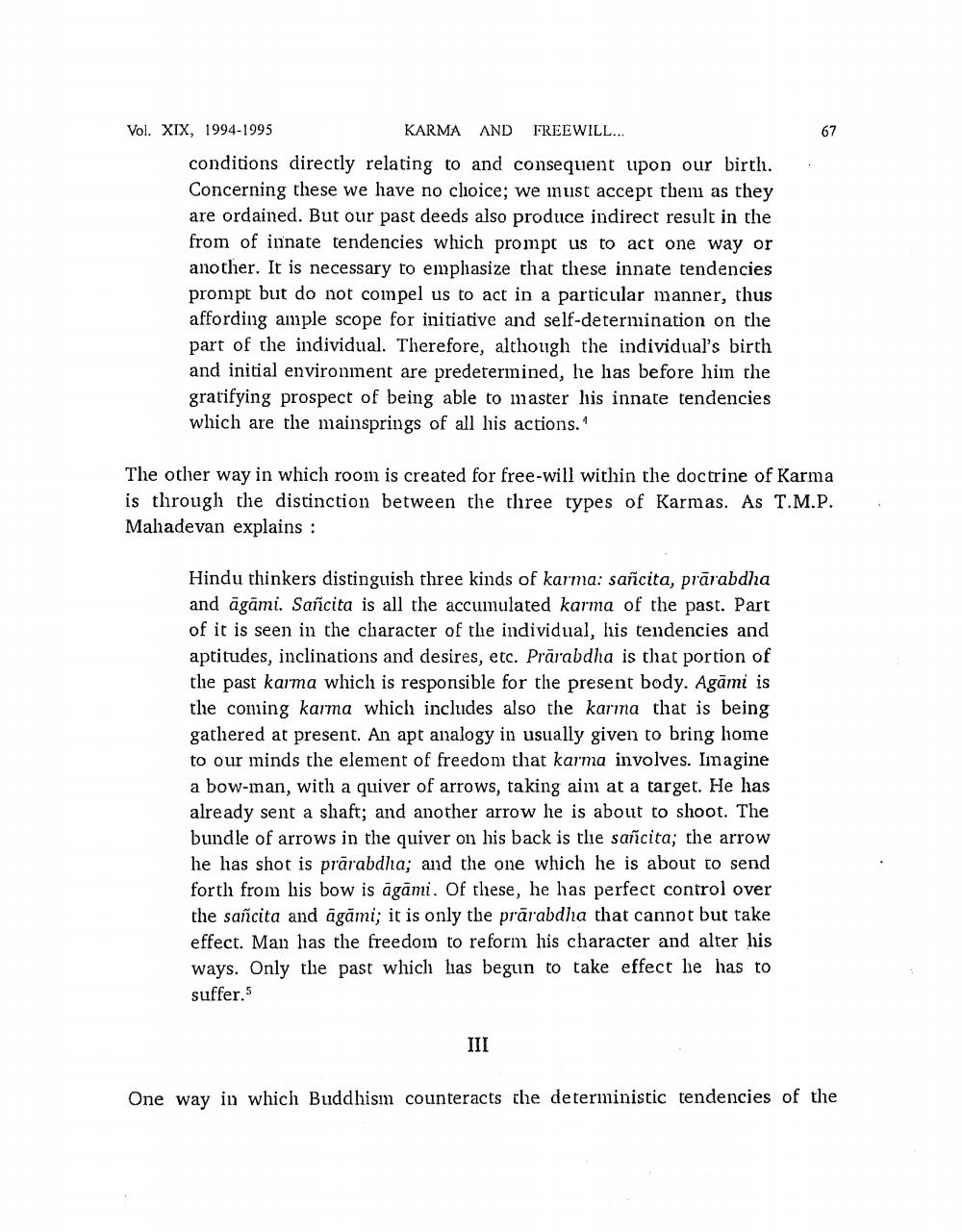________________
Vol. XIX, 1994-1995
KARMA AND
FREEWILL..
.
conditions directly relating to and consequent upon our birth. Concerning these we have no clioice; we must accept then as they are ordained. But our past deeds also produce indirect result in the from of innate tendencies which prompt us to act one way or another. It is necessary to emphasize that these innate tendencies prompt but do not compel us to act in a particular manner, thus affording ample scope for initiative and self-determination on the part of the individual. Therefore, although the individual's birth and initial environment are predetermined, he has before hiin the gratifying prospect of being able to master his innate tendencies which are the mainsprings of all his actions."
The other way in which room is created for free-will within the doctrine of Karma is through the distinction between the three types of Karmas. As T.M.P. Mahadevan explains :
Hindu thinkers distinguish three kinds of karma: sancita, prārabdha and āgāmi. Sañcita is all the accumulated karma of the past. Part of it is seen in the character of the individual, his tendencies and aptitudes, inclinations and desires, etc. Prārabdha is that portion of tlie past karma which is responsible for the present body. Agāmi is the coming karma which includes also the karma that is being gathered at present. An apt analogy in usually given to bring home to our minds the element of freedom that karma involves. Imagine a bow-man, with a quiver of arrows, taking aim at a target. He has already sent a shaft; and another arrow he is about to shoot. The bundle of arrows in the quiver on his back is the sancita; the arrow he lias shot is prārabdha; and the one which he is about to send forth from his bow is āgāmi. Of these, he has perfect control over the sancita and ägāmi; it is only the prārabdla that cannot but take effect. Man has the freedom to reform his character and alter his ways. Only the past which lias begun to take effect he has to suffer.5
III
One way in which Buddhism counteracts the deterministic tendencies of the




